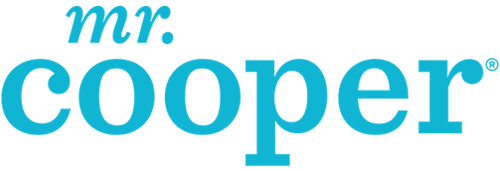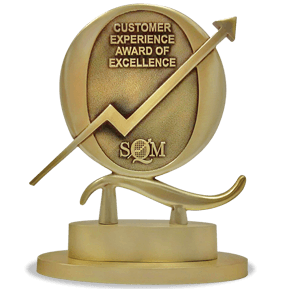SQM Group Helped Mr. Cooper Achieve:
FCR Results
In conclusion, the key to an effective coaching program is hard work. If you want your FCR to improve, and if you want to move the needle, you have to be willing to put in the work to make it happen. There’s no easy way to do it, and there’s no magical change that a site can make that will cause their scores to improve overnight. We’ve kept our heads down, treated the SQM scores as the ultimate measurement, trusted in our strategy for the past seven years, and have seen significant FCR improvement. It happened because we worked hard and stuck to doing the right things, one day, one agent, one customer, one call, and one coaching session at a time. Our FCR results have almost improved by 50% in the last seven years. We have improved our FCR performance every year since 2013. We started our FCR journey in 2013 being a fourth quartile FCR performer, and in 2019 we became a first quartile FCR performer. We have several call centers that have been certified by SQM as a world-class FCR performing call center. The criteria to be certified as a world-class FCR performing call center is your FCR rate must be 80% or greater. Of the 500 call centers SQM measures, only 5% of their clients perform at the world-class FCR standard of 80%. The bottom line is that our agent, coaching, played an essential part in helping us achieve our fantastic FCR improvement results.

Company Description
Mr. Cooper is one of the largest and fastest-growing mortgage servicers in the United States, with a servicing portfolio in excess of $400 billion and more than 2.4 million customers. Mr. Cooper offers servicing, origination, and transaction-based real estate services to all of our customers, including homeowners, homebuyers, home sellers, investors, and other real estate market participants.

Opportunity Statement
Our call centers have a relentless focus on providing quality service to our customers. Our primary call center is located in Irving, TX, with partner call centers across the US and Manila.
With the rapid growth at Mr. Cooper over the past few years and the high number of new hires on our roster, the need for an effective coaching program is essential to our continued success.
Our company’s coaching culture has never been stronger, and it’s become a way of life for us. The amount of time that we have our supervisors, AVPs, and VPs in coaching sessions or call listening sessions has increased over the past two years, which helps us have a consistent coaching process from the top down.
Coach-the-Coach
We use a coaching feedback grading form to evaluate and score our coaches’ effectiveness by rating them on specific criteria. The coaches are observed by their VP weekly and given a score of 0%-100%. Below are the steps that must be followed in every coaching session, and the VP checks Yes or No for each one:
- The facilitator was prepared for coaching
- The stated purpose of the discussion
- Recapped the previous session and updated on the progress of the action plan
- Played the call and then let the agent summarize the call
- Determined strengths
- Reinforced strengths
- Reassessed opportunities from the previous session
- Identified areas for improvement (new or same)
- Shared customer feedback (using SQM Surveys/Verbatims)
- Gathered assessment of possible results of the behavior
- Formulated action plan
- Facilitated identification of needed resources and/or support
- Checked for understanding and confidence
- A determined measure of success
- Facilitated identification of follow-up dates and immediate next steps
- Documented agreed action plan
In addition to the required steps, there are also overall effectiveness qualities that the VP must assess:
- Did the coach display full control of the coaching session?
- Was the coach able to enhance or maintain the agent’s self-esteem during the coaching session?
- Was the coach able to determine the root cause of the behavior?
- Was the coach able to lead the agent to generate a sound action plan?
- Did the coach and representative come up with the most impactful action plan?
- Was the coach successful in getting the commitment of the representative?
Once the agent has been dismissed, the VP and supervisor walk through the form and agree on the session’s final score. During this discussion, opportunities from the prior session will be revisited, and updated action plans will be decided upon. The coach is always held accountable to improve their technique, no matter how good they are.
These activities are logged into a database, and reporting is used by the leadership, which details the scores, strengths, weaknesses, and action plans for each supervisor/coach. The coaching score combined with the manager’s overall SQM Csat determines their ranking (i.e., The supervisor with the best SQM results and the highest Coaching Effectiveness rating is considered our most valuable supervisor).
Call Listening Sessions
We conduct routine call listening sessions at all of our sites that follow a prescribed formula. There are 3 different versions:
- Agents listening to themselves and coached by their supervisor (led by VP) – Twice a week
- Supervisors listening to their own escalated calls (led by VP) – Weekly
- Agents listening to themselves (led by their Supervisor) – Weekly
In these sessions, we have a rotation to ensure every agent and supervisor gets their turn, no matter their performance. We pull a call that SQM has surveyed, and we listen to and critique it in sections:
- Greeting and authentication process
- Customer’s problem and the agent/supervisor’s confirmation of understanding
- The information is given, the solution provided, and expectations set with the customer
- Closing of the call
Between each section, we pause the call and give it a rating of 1 - 4 (1 – Unacceptable, 2 - Needs Improvement, 3 - Meets Expectations, 4 - Outstanding) on the following metrics:
- Voice Quality (Tone, confidence, call control, energy)
- Language (Proper scripting, grammar, accent, sentence construction)
- Accuracy (Did the agent do everything correctly? Did they provide complete and accurate info?)
- Csat (What did the customer have to say about the experience?)
The agent or supervisor will first grade themselves (or their agent). The rest of the attendees are then asked to share their observations if it differs. The final score is decided by the VP (or the highest-ranked person in the session), and if it’s anything lower than a 3, a follow-up session with that same person is scheduled for the following week. Upon receiving a failing score, the top coaching opportunity is identified and agreed upon amongst all in attendance. The agent or supervisor is expected to spend the next week working on an action plan to correct their biggest weakness. In the follow-up session, the coaching opportunity identified in the previous session is highlighted, and if there’s still no improvement, additional follow-up sessions are scheduled. We do not move on until the agent or supervisor fixes the issue and achieves a passing score.
There are two reasons why these sessions are always practical:
- Once we find a problem, we do not stop working on it until it is fixed; if that results in disciplinary action leading up to termination, so be it. We do not compromise our standards, and we provide ample support to the individuals to help them succeed in improving their performance.
- These sessions are led by senior management (AVP/VP and sometimes SVP). The VP not only leads the discussion but participates in grading the calls, demonstrating their product knowledge to the people that report to them. By rolling up their sleeves and paying attention to the details of each call, they not only earn credibility with their staff, but they have a direct influence on the things that move the needle for their area of responsibility. If you are a fresh manager
Process Improvement in Supervisor Calls
As stated above, we have a weekly session where supervisor calls are played in a meeting, and the supervisors are coached on how to improve their escalation handling skills. In addition to coaching them on their technique, we also spend time addressing potential process improvement opportunities that become apparent while listening to these calls. In most cases, customers choose to escalate things because of a process failure (e.g., something went wrong; their expectations weren’t met, etc.). So, we use these sessions to have an in-depth discussion about what processes we could change/fix to prevent these escalations from happening in the first place.
For example, one of our top escalation categories has been our slow refund process. Oftentimes, customers end up making duplicate payments and are in need of an immediate refund, but our turnaround time for returning the money to them was 2-3 days. This was unacceptable for most customers, and our managers were dealing with these escalations on a daily basis. Customers would follow up, refuse to hang up until the money was back in their account, etc. It was a major source of frustration for everyone involved. Then we implemented a new tool on the front lines that allowed our agents to execute a same-day electronic refund, and we’ve been able to resolve most of these with the first agent they spoke with. Now it’s just as easy as making a payment over the phone. Ever since this tool was implemented, the volume for those refund escalations dropped significantly.
These are the types of things we look for when listening to supervisor calls, and every week we come across something new to add to the list.

Coaching Sessions
Our agents are scheduled to meet with their supervisor for a 1-on-1 coaching session for one hour per week. The same prescribed formula from our Call Listening Sessions is used in our 1-on-1 sessions. The supervisor does the following in each session:
- Prepare – Reviews the Coaching Tracker for previous notes and listens to previous calls if needed. Makes sure that before the agent enters the room, they are up to speed on their strengths/weaknesses. They have a call prepared to play. They have taken time to preview and have a clear understanding of precisely what they’re going to be listening for and what they want to accomplish. The Coaching Tracker is an internally designed online tool that the supervisors use to track all coaching activity. This online tracker is a great tool to ensure any part of the management team has knowledge of the coaching and could pick up where the previous supervisor left off.
- Coach – They listen to the call together and grade it using the Call Listening Sessions formula. Instead of telling the agent how they did, we ask the agent questions about their performance, letting them tell us how they think they did. We lead them to specific topics if they don’t address it on their own and always spend extra time on whatever opportunity was identified in the previous session to decide together if it’s improved, worsened, or stayed the same.
- Follow Up – Once a final score has been settled on, the supervisor asks themselves, “Is there follow-up needed with a customer?” if poor information was given. If so, they call the customer with the agent to set things right, document the call's strengths/weaknesses, and the agreed-upon action plan for improving the agent’s performance in the CoachingTracker. This will be referenced in the follow-up sessions, and the process repeats as there are always going to be coaching opportunities, no matter how good the supervisor or agent thinks they are.
WOW Words
Our call center soft skills include using WOW words. Some examples of WOW words are: Perfect, Fantastic, Definitely, Absolutely, and Excellent. WOW, word cards are at every agent’s desk, graded on QA forms, and reviewed on coaching forms. Agents receive real-time recognition from supervisors and management when WOW words are heard on the floor and in coaching sessions.

Building on the Best/Targeted Training
Twice a week, we conduct a meeting with a rotation of supervisors and floor coaches to discuss targeted training opportunities. One of our Subject Matter Experts (SME) led these meetings. We identify these opportunities through items observed in Call Listening Sessions, SQM Dissatisfied Verbatims, Quality Monitors, and FAQs we see on the floor. The supervisors and floor coaches are encouraged to bring their own topics to these meetings and expose their weaknesses. If there is a certain supervisor call they’re afraid to take because they’re not comfortable with the product or topic, this is the session where they confront this fear with their peers (who are likely struggling with the same thing), and they work on it together. The SME will walk them through these items step-by-step until everyone understands and is comfortable. The SME also incorporates fun games, pop-quizzes with prizes, and role-playing. Senior management is intentionally excluded from these meetings so that everyone feels like it’s a safe place to learn and not be criticized for their knowledge gaps.
Performance Scorecards
Employees at all levels (agents, supervisors, trainers, AVPs, VPs, SVPs, etc.) are given a scorecard and held accountable for their metrics individually (SQM Metrics, AHT, attendance, adherence, sales leads, QA, etc.). Just like with our Coaching Sessions, everyone is expected to know their strengths and weaknesses, and they must commit to an action plan to constantly improve their performance. These performance reviews are held weekly, and if metrics don’t meet expectations, no matter what level they are at, they will be coached up to meet expectations, or they will be coached out.
Calls of Fame Library
While we coach the agent on how to improve, we are providing them with a real-life example of how it should be handled. In order to share the experience with the masses versus just the individual, we created a “Calls of Fame Call Library.” Agents are able to self-nominate a call which they believe they have handled particularly well. This allows the agent to be involved in the process and feel they have a voice. The nominations allow us to highlight a particular aspect of a call and allow supervisors easy access to coaching examples for specific call behaviors. Examples of best practice call behaviors are Tone, WOW Words, empathy, and active listening. The Calls of Fame committee reviews the call. If the call is accepted into the Calls of Fame, the agent receives a Calls of Fame certificate, Calls of Fame announcement email. The call is made available for coaching review with fellow agents and made available to upper management.

SQM Awards Received
Call Center World Class FCR Certification (Customer Service and Private Label): 2019
Call Center World Class FCR Certification (Assurant): 2018
Best Practice: Agent Coaching: 2016 - 2018
